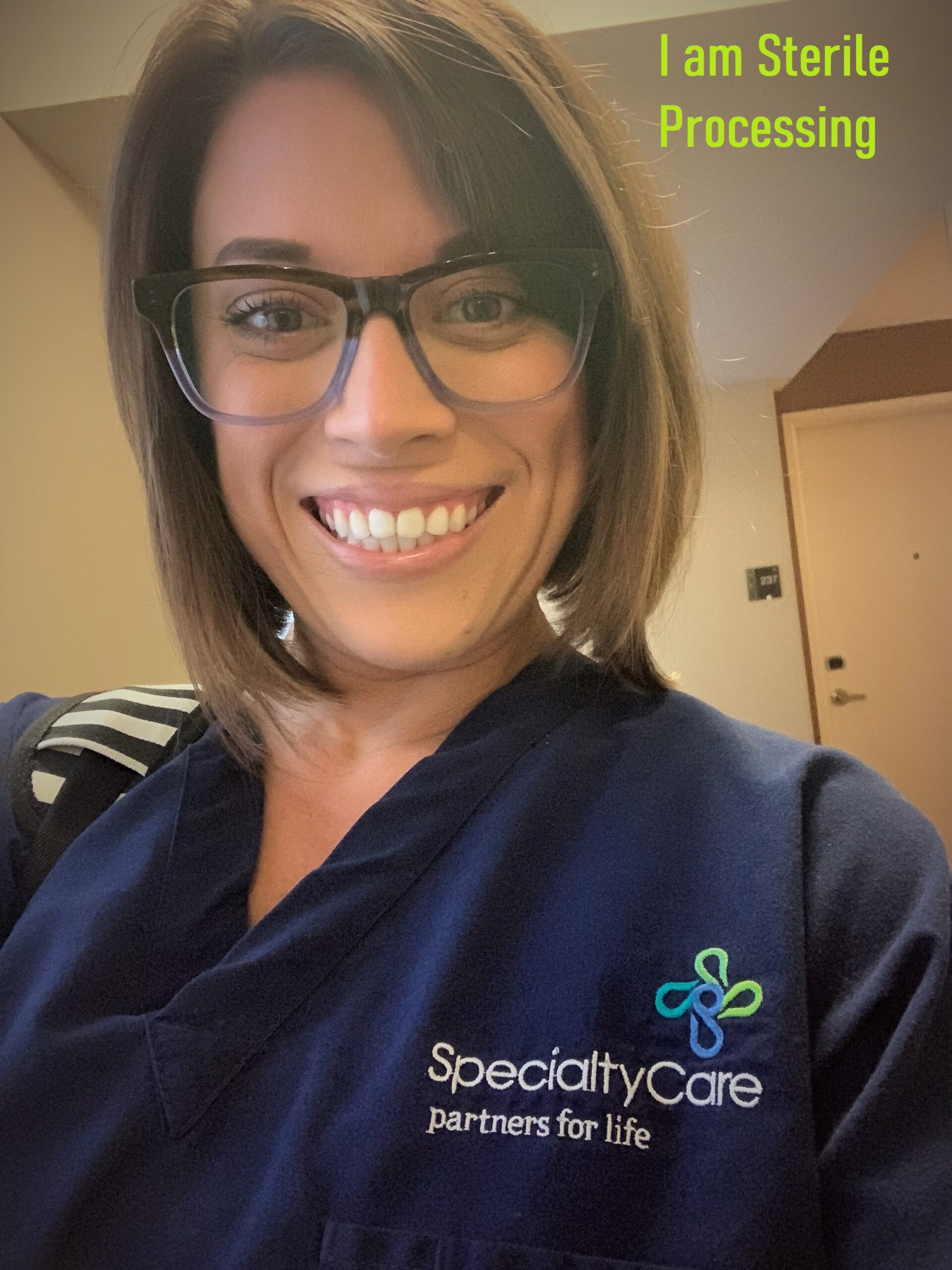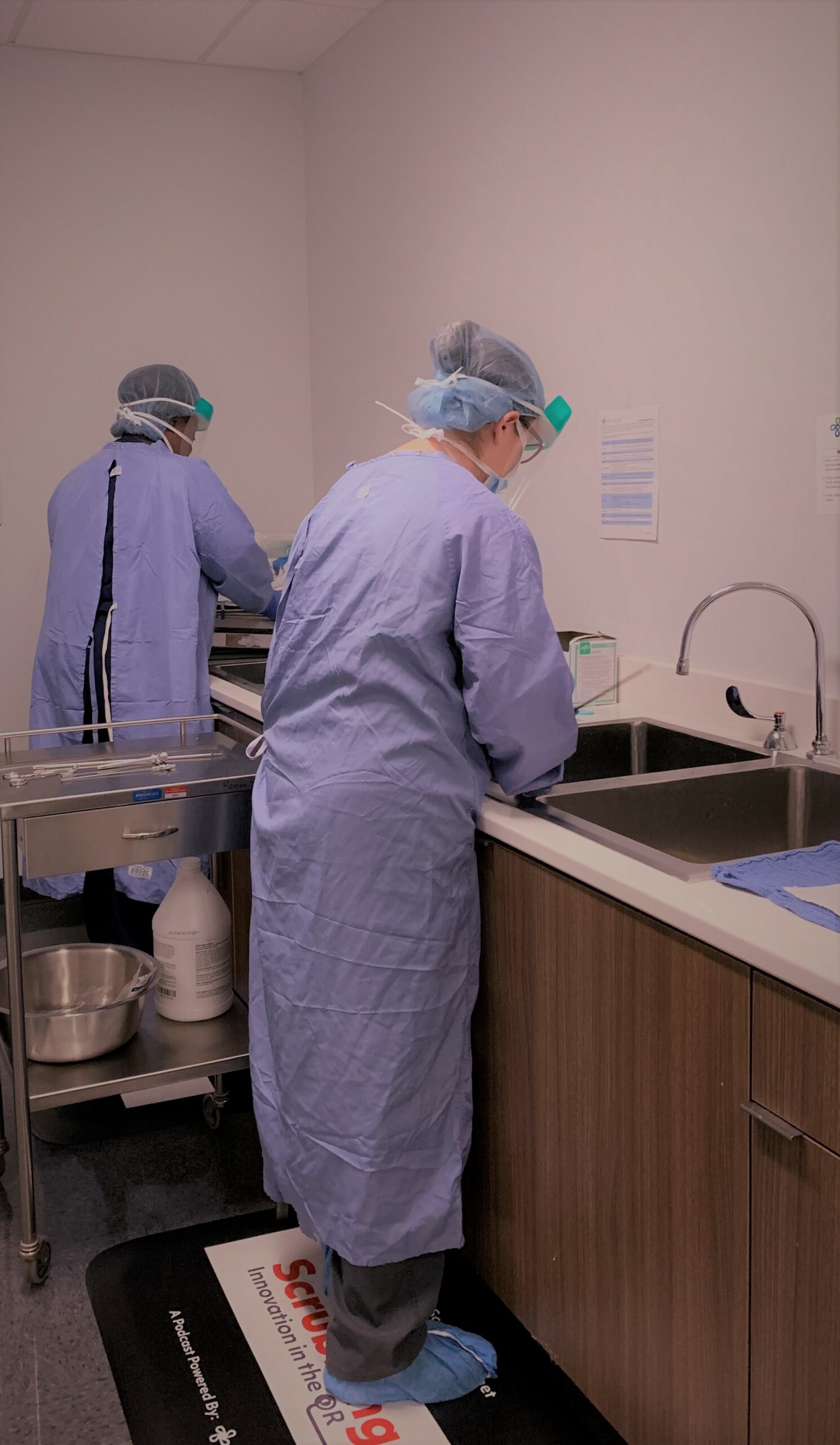Sterile Processing is a distinct health profession that focuses on the direct support of patients who are undergoing any type of procedure or surgical intervention. Sterile processing professionals are vital members of the overall surgical and operational care team, preparing, inspecting, processing, cleaning and sterilizing various types of surgical equipment and advanced medical devices. In honor of Sterile Processing Week 2021, October 10-16th, we wanted to showcase an inside look into the life of one of our skilled team members. We spoke with Randalyn Walters, CRCST, CSPDT, CIS, CER, CHL, CSPDM. Randalyn is new to our team and brings an innovative and creative approach to sterile processing initiatives.

How Would You Describe the Work of a Sterile Processing Technician?
A sterile processing technician is a multifaceted role. They are expected to deliver quality products in immediate, urgent timeframes where sometimes it’s nearly impossible. Being an SPD professional requires dedication, critical thinking, and intense work. We push, pull, and lift up to 2.5 tons of equipment in an 8-hour shift, all while focusing on the safety of ourselves and our teammates. The workflow of sterile processing duties begins when medical equipment is received in our receiving area, known as decontamination. This space is highly regulated and high amounts of throughput travels each day. Here it is required we protect ourselves from potential pathogenic microorganisms, working hard to break the chain of infection. Cleaning is the first step in our reprocessing cycle. If items are not cleaned properly, they cannot be sterilized properly in the next phases of the cycle. Its pertinent to our patient’s safety that specific chemistries be utilized to clean, along with time, manual labor, and heavy machinery assisting in the process. Once items are cleaned, we inspect every instrument for functionality, cleanliness, and organization. Prior to sterilization, all instruments must be safe for use to ensure proper handling for our surgeons while also eliminating the chance for patient harm.
What Does Your New Position Involve?
Being an educator is so much more than training and onboarding new hires. While those duties are absolutely critical to the success of our departments, it is really more about sustainability and the retention of knowledge. With the advancement in medical devices and reprocessing equipment, it is important in this industry to focus on new, effective ways to reach your associates. I am currently working to help develop a standard education program for our sterile processing solutions, as well as find opportunities for improvements to the way we educate associates by utilizing innovative platforms, reaching people virtually, and developing content that is easy to understand. I am so excited to be a part of such a collaborative team with so much experience and knowledge. We are moving in a direction I haven’t seen much of in the industry, and sterile processing departments should be excited about the dedication and quality focus on their patients and also their staff. I want to share all the valuable experience I have gained with as many people as I possibly can to hopefully shed light on the importance of sterile processing and the detailed expertise it requires.
What Challenges Have You Faced Working in Sterile Processing?
Getting recognized in sterile processing and earning respect is quite a challenge. Many of the sterile processing professionals out there spend their entire career in this industry without real recognition. We should be treated with the same respect as our peers. That being said, the industry is evolving and now, more than ever, I see a shift in the way organizations are structuring their departments. Having support from leadership to better understand the requirements to run a well-oiled machine in SPD is challenging and costs money. Most of the time, the challenges include a lack of inventory to provide the support for the volume increases in surgical cases, having the resources available to staff the department and develop your team, and getting the sterile processing personnel more involved with surgery! All perioperative staff should spend time learning from their SPD teams, not just coming down when they need something, but really learning and building respect and ever lasting relationships with the team that holds them up. I believe that is what it’s all about.

Why is Celebrating SPD Week Important to You?
Sterile processing is the hidden powerhouse of the hospital. Not only would surgery not be able to function without us but, as many are aware, the surgical operations of healthcare bring in a vast majority of the revenue. I recently shared a brief capture of what I feel is sterile processing and I’d like to share it again here:
#sterileprocessing
We don’t know what we are walking into each day.
We don’t want to have the backlog that we do.
We rely on our supporting teams.
We rely on Biomed.
We rely on Engineering.
We don’t have a choice – to or not to.
We lift, push, pull, and move tons daily.
We don’t ask questions when we’re asked to transition our workload.
We are always expected to work, in even some of the most difficult conditions.
We have to work as a team or we fail.
We strive to be recognized.
We don’t want to be misunderstood.
We carry technical skills that take many years to master.
We are expected to identify hundreds of thousands of surgical instruments.
We don’t intend for quality defects.
We care about positive outcomes.
We care for our patients that we never get to see.
We ARE the heroes of healthcare- without us there would be
No Surgery…
Without SURGERY patients would suffer.
I am a passionate sterile processing professional – and, yes, I love what I do!